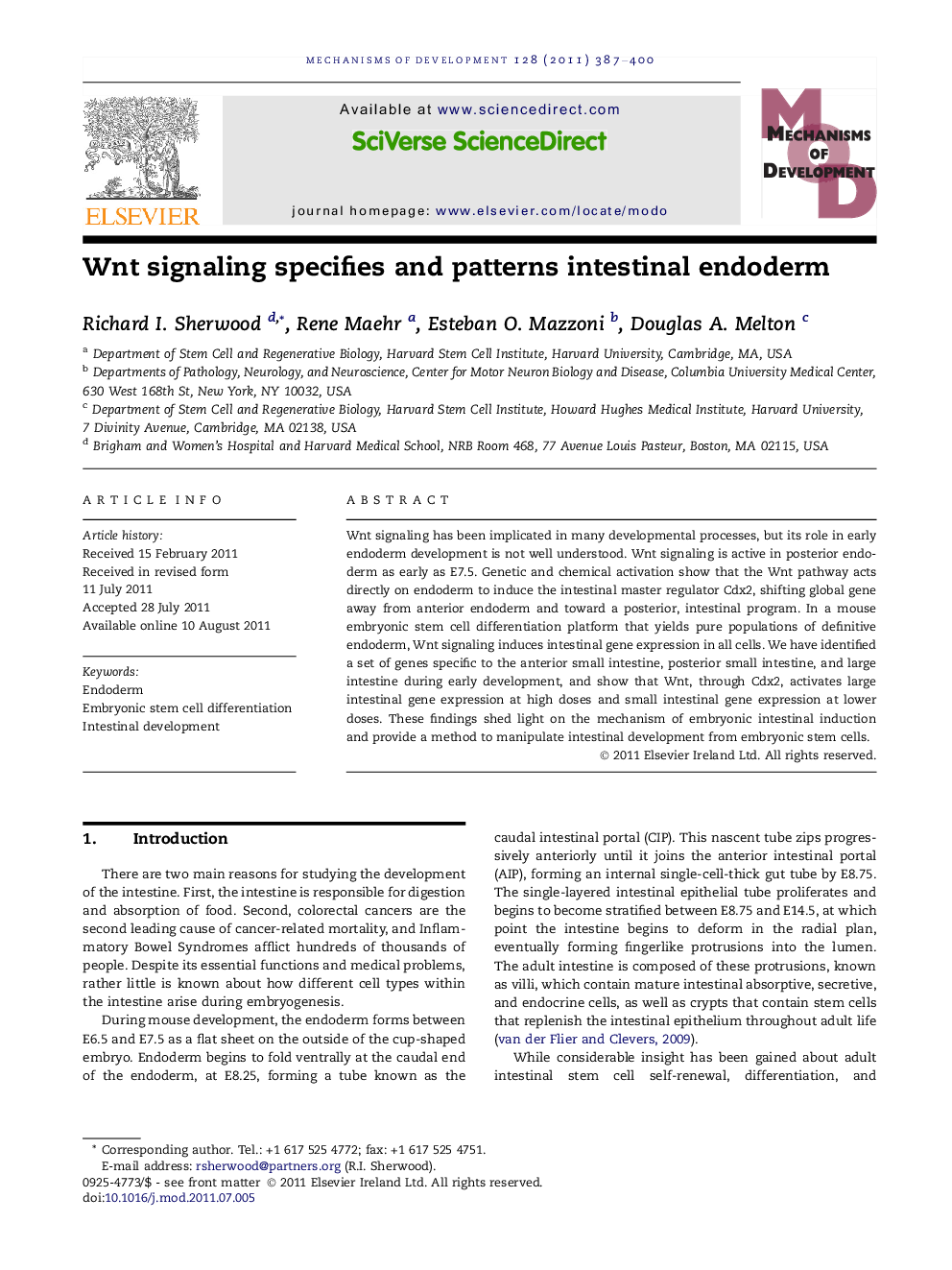| Article ID | Journal | Published Year | Pages | File Type |
|---|---|---|---|---|
| 2194668 | Mechanisms of Development | 2011 | 14 Pages |
Wnt signaling has been implicated in many developmental processes, but its role in early endoderm development is not well understood. Wnt signaling is active in posterior endoderm as early as E7.5. Genetic and chemical activation show that the Wnt pathway acts directly on endoderm to induce the intestinal master regulator Cdx2, shifting global gene away from anterior endoderm and toward a posterior, intestinal program. In a mouse embryonic stem cell differentiation platform that yields pure populations of definitive endoderm, Wnt signaling induces intestinal gene expression in all cells. We have identified a set of genes specific to the anterior small intestine, posterior small intestine, and large intestine during early development, and show that Wnt, through Cdx2, activates large intestinal gene expression at high doses and small intestinal gene expression at lower doses. These findings shed light on the mechanism of embryonic intestinal induction and provide a method to manipulate intestinal development from embryonic stem cells.
► Wnt acts directly on endoderm to specify intestinal fate. ► Wnt induces the intestinal master regulator Cdx2. ► Wnt signaling induces intestinal gene expression in ES-derived endoderm. ► Wnt, through Cdx2, activates large intestinal gene expression at high doses and small intestinal gene expression at lower doses.
